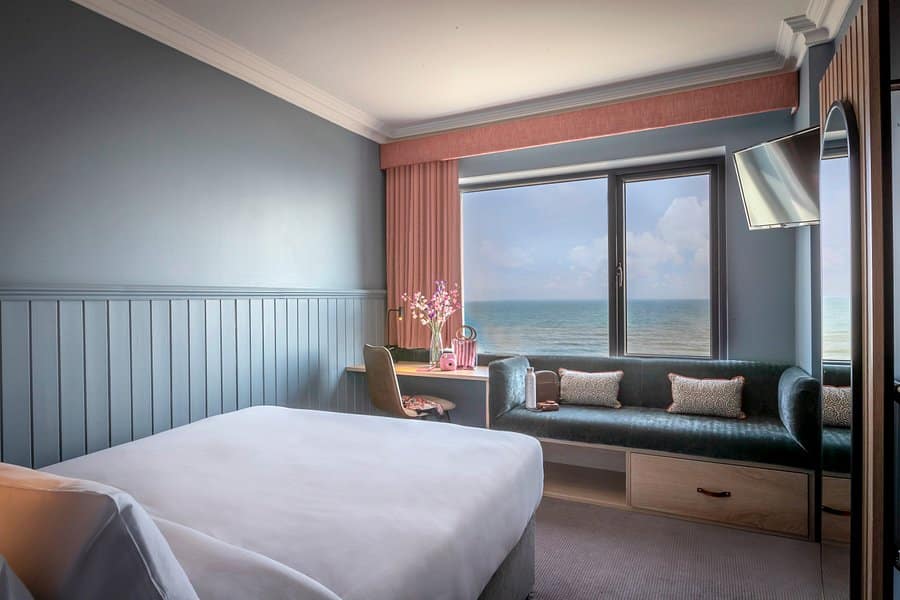Are you ready to get tons of quality website traffic from people who want to book, without paying for ads?
That is the strength of SEO. In this article, David Monaghan, SEO Specialist from the VROOM Digital team, shares some simple SEO tips that you can implement right now to improve your website.
“SEO is the practice of improving your website to gain more visibility from top search engines. Organic search is the number one driver of all website traffic SEO and if you’re not thinking about your SEO strategy, you’re leaving bookings and revenue on the table or handing them over to OTAs because they care about SEO!” – David Monaghan, SEO Specialist VROOM Digital
SEO for travel has many moving parts, but we are going to focus on three key areas:
- Your website
- The content you create
- What happens off your website
1. Your website:
One of the best things you can do for your website makes it easy to use. Indeed, many clients at the chain level don’t have much control over the look or the feel. And if you’re an independent or small operator, you might have more say, but not necessarily the ability to edit the design yourself.
Even if your options to edit the design or the structure are limited, you can still do things to make it easier for potential clients to find and use your website, without hiring a developer.
Compress your images and video files. Big media files slow everything down and Google hates slow websites. Compressing your pictures means making the file size smaller without sacrificing quality. Ask your photographer or videographer to give you compressed files, or do it yourself using free tools like JPEG Optimizer.

Using formatting contributes to the overall user experience and tells Google what your content is about. You can do things with your page formatting that help your website rank higher on Google. Use your keyword throughout the text, and ideally try to get it into that header one or header two; add links within your content and make sure you are linking to other pages on your website and external relevant websites.
Don’t cluster huge novel-length blocks of text. Break it up. Use negative space, bulleted lists, simple design elements or images throughout the page. Formatting is essential on desktop, but it makes a difference on mobile, where users scroll or skim content on a small screen.
Give every page a purpose. You don’t need to sign off every page screaming “please book now”, but your page should have a singular purpose. Other calls to action could be “explore our destination guide” or “download our Ebook”. The action you want your website visitor to take does not always have to be to make a booking. They might not be ready to buy from you yet. If someone is browsing around looking for a hotel, they might land on your rooms page, but are they prepared to make a decision right then and there? Probably not. Ultimately every page should revolve around a clear purpose.
For our client Shoreline Hotel, rather than building out new content, the VROOM SEO team worked on optimising and repurposing the existing content on the website and making sure that every page targeted a specific set of relevant keywords. This narrowing down of the targeting scope drew more relevant traffic to the website and significantly improved the performance.

2. The content you create.
All you need to know is that Google wants to help people solve their problems. So ask a question, and get the best possible answer. That is what a search engine algorithm boils down to.
You don’t have to publish a 3000-word blog post every day or create a landing page for every different keyword that you want to rank for. Instead, focus on making your content as high quality as possible. Ask yourself what someone looking at your offers page is looking for: What do they want to know? What questions might they have? What are their concerns or pain points?
At VROOM Digital, we think that most websites should have a blog, especially if they don’t have a strong chain brand name. So if you do launch a blog, what kind of content will you publish? What do your guests want to know about your destination? How can you answer their questions better than Tripadvisor or the OTAs?
SEO for accomodation can be tricky because hotel businesses face steep competition from OTAs like Expedia, Booking.com and Tripadvisor. Their websites are established and drive tons of traffic from links from other websites. Google thinks they’re authoritative and trustworthy. When using keywords on your hotel website, write for people, not the search engines.
3. Outside of your website.
SEO is not just about content keywords or page speed. There’s a whole other world of things to consider off your website too. Here are two things that you can do outside your website that help your website rank higher on Google
- Complete your Google, my business listing; it is such a simple thing to do that makes a big difference. If you haven’t already claimed yours, click here to do so.
- Build high-quality links by getting other established credible websites to link to yours. A backlink is one of many signals that Google uses to tell whether your website is trustworthy or not. If you’re working with a PR agency, make sure you’re working with someone who understands SEO because digital PR can find good linking opportunities on other listing sites near local tourism bureaus, preferred partners, suppliers, and vendors you work with.
For our client Doolin Ferry Co., our SEO team works on optimising the technical backlink profile, ensuring the website benefits from high-quality organic backlinks. As a result, Doolin Ferry Co. has seen a consistent search engine visibility increase and an overall improved domain authority.
Understanding SEO is more important than ever. It is not always as fun as Instagram or TikTok, but SEO secures the long-term growth of your brand awareness, traffic, and ultimately, bookings.
Are you still feeling overwhelmed by SEO? VROOM Digital will help you earn more business by getting eyeballs on your website and more direct bookings from your visitors. Email any questions you might have to [email protected]


